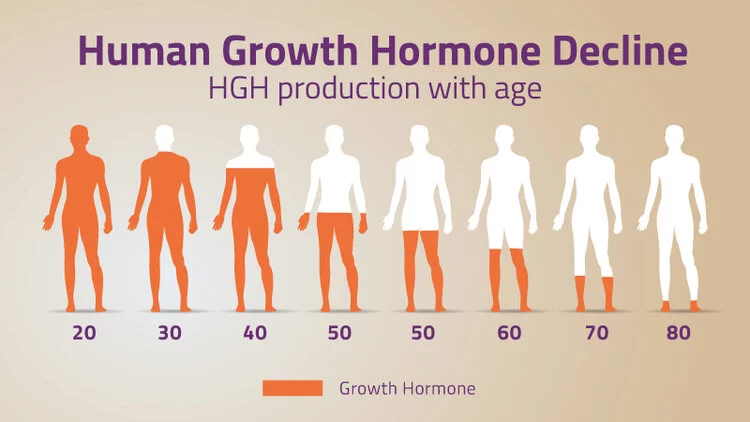Are you unsure of the best time to begin taking multivitamin? Multivitamins are crucial for maintaining the body’s general health and preventing infections. It is simple to get insufficient nourishment from your usual diet, especially when you rely heavily on processed foods and convenience.
The majority of people are perplexed about which daily supplement is best and whether they need it. It’s critical to recognize where you should start and to consider the nutrients your body presently receives as well as those it requires. So, if you’re unsure about when to begin taking multivitamin supplements, check out this insightful blog, which will explain when is the best time to do so as well as the advantages they provide for people of all ages.
Although vitamin supplements are not new to us, the COVID-19 pandemic has increased its popularity. They might aid in boosting our natural defenses and thwarting the coronavirus.
Vitamins are the fundamental building blocks of the body that helps you to maintain great health. Some people believe that taking multivitamin tablets will help compensate for poor eating habits and may reduce your risk of developing chronic illnesses.
We try to eat better, exercise more, and sleep better, but we still don’t get enough essential nutrients. We work to achieve balance to improve wellness so that we can handle the stress, lack of sleep, and nutritional inadequacies brought on by a hectic lifestyle.
How do multivitamins work?
Multivitamins combine the various vitamins and minerals found in food. A daily multivitamin supplement can help us fill nutritional gaps and improve our health naturally. We can quickly meet our daily nutritional needs and obtain the recommended daily amounts of all vitamins and minerals with the help of multivitamins.
Which vitamins do multivitamins have?
As the name implies, it also includes minerals and some vitamins. For proper growth, the human body needs 13 vitamins and 16 minerals. Herbs, amino acids, and essential fats are examples of additional ingredients found in multivitamin pills.
Now, we will Understand the Value of Multivitamins Based on Your Age: –
If you find yourself wondering when to start taking multivitamins, you should know that this is entirely a matter of personal preference and physiological requirement for each person.
Your age, weight, stamina, and ambient factors all have a significant role. Multivitamins are frequently mistaken for energy supplements by individuals who have never tried including them in their diets. This is untrue, though, as multivitamins improve more than just your energy levels; they also improve your general health.
5-18 Years
Numerous studies have demonstrated that most healthy youngsters who are developing normally do not require multivitamins. The best source of nutrition is food. Regular meals and snacks can supply enough nutrients for the development of a strong body.
Even though many kids, especially teens, are finicky eaters, this does not necessarily indicate that they are malnourished. Breakfast cereal, milk, fruit and vegetable juices, and other typical foods are all packed with vital nutrients including vitamins B and D. Therefore, unless there is a prescription for a deficiency, children over 5 and teenagers should not worry about taking multivitamin supplements.
The Early 20s
At this stage of life, your lifestyle and food take a somewhat different turn, which could lead to vitamin deficiencies. For instance, if your diet is not carefully planned, persons who live a vegan lifestyle may be more likely to lose out on proteins and antioxidants. A hectic lifestyle also brings about a lot of change, depriving us of several essential minerals. You could start including daily multivitamin supplements into your diet to get rid of such inadequacies. They can support keeping the body’s overall health and supplying it with enough nutrients.
One excellent way of including multivitamins in your daily intake is by having fitspire multivitamins which will help you to increase your stamina, bone health, physical performance, and immunity.
The late 20s to 30s
These are typically the years of childbirth for many women. To assure a healthy child free from complications related to medical deficits and disorders, many women attempt pregnancy during this time. For women over 30, multivitamins are crucial to help them become ready for conception. Multivitamins, particularly those with folic acid and B-complex, should be started by them. These vitamins support a healthy pregnancy and help lower the chance of neural tube birth abnormalities.
The 40s to 50s
As people get older, it becomes increasingly important to take multivitamins, especially vitamin D. Low levels of vitamin D have been linked to a variety of heart diseases, such as cancer, diabetes, and autoimmune disorders. It is really difficult to obtain enough nutrients from diet alone. Elderly people must take multivitamins.
The 60s
Since sustaining heart and bone health is important as we age, calcium and vitamin D should be basic vitamins for this age group. In order to give the body enough nutrients and prevent deficiencies, it is crucial to incorporate multivitamins for older age.
Multivitamins should be taken especially carefully by older women in their 60s. Magnesium, vitamin D, and vitamin K are crucial to maintaining bone and heart health as well as preventing cancer infections. Multivitamins for older women should be started by women over the age of 50.
Advantages of Taking a multivitamin:-
Consuming a multivitamin has numerous advantages. According to recent research, not getting enough of some micronutrients may increase your risk of developing chronic diseases.
For certain people, consuming a multivitamin may help reduce the following risks due to the dietary gaps that it can fill.
• Eye diseases Type 2 Diabetes
• Osteoporosis
• Heart Disease
The common nutritional gaps in our regular diets will also be lessened, with the exceptions of vitamin D, Calcium, and Magnesium, which sometimes necessitate supplementary supplementation.
No matter your age or stage in life, keeping good health should be your top priority, whether or not you supplement your diet with extra nutrients. It’s a terrific and secure strategy to boost general health to include multivitamins in regular regimens. Before beginning to take multivitamins and other supplements, it is crucial to speak with a medical practitioner.




